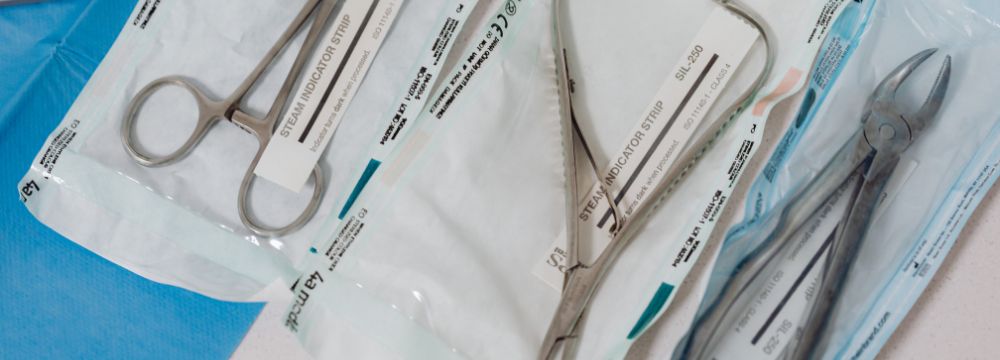Comparing Bariatric Procedures in 2024

As we wrap up 2023 and enjoy the holidays, we quickly turn to the new year with a desire to improve our lives and health. Many of you may be considering bariatric surgery, especially with the advent of weight loss injections that have brought new light to the treatment of excess weight and obesity. If you have ever thought about bariatric surgery in the past, you may have some preconceived notions. With so much innovation over the past few years, we must revisit the most performed bariatric surgeries to help you understand what may be best for you.
The Gastric Sleeve
The gastric sleeve remains the most-performed bariatric surgery in the United States because of its relative simplicity and consistent results. While the sleeve hasn’t changed much over the past decade or so, our understanding of how it affects the body and weight loss has been refined. Data in recent years has shown that it is almost as effective in the long term, at least for weight loss, as the gastric bypass. On the flip side, we know that the gastric sleeve has the potential to create or worsen acid reflux. The gastric sleeve also offers a hormonal benefit since we remove the primary hunger-producing hormone center, known as the fundus of the stomach. However, we’ve also learned that ghrelin, this hunger hormone, can be produced in the small intestine after about two years, making the need to stick to new habits much more critical after surgery.
The Gastric Bypass
While the bypass could be considered the grandfather of bariatric surgery, it is still appropriate in many patients, especially those who are suffering from poorly controlled or uncontrolled type two diabetes and gastroesophageal reflux disease/Gerd. Once again, we haven’t made too many changes to the gastric bypass other than refining measurements here and there. However, we have significantly improved patient selection today, making the bypass even more impressive in its results.
The New Kids on the Block
While the above two stalwarts of bariatric surgery are still very much at the forefront of most patients’ minds, several procedures have been gaining in popularity recently. The duodenal switch has been refined in the past several years to minimize its once-significant gastrointestinal risks. It now offers the most weight loss potential of any bariatric surgery today. The DS is ideal for patients with a very high BMI and is often covered by insurance. A single anastomosis version of the DS known as the SADI is also growing in popularity and offers the benefit of one fewer surgical connections.
The mini gastric bypass (omega loop or single anastomosis gastric bypass) was recently endorsed by the American Society of Metabolic and Bariatric Surgery (ASMBS). With all the successful bariatric surgeries we have refined and performed over the past few years, this surgery may be appropriate for only select cases. Still, it is something that we will discuss during your consultation if you qualify.
Last but certainly not least, endoscopic surgery is making a big push. The FDA recently approved the E.S.G., or endoscopic sleeve gastroplasty, which represents a non-surgical option for creating a smaller stomach like the gastric sleeve without cutting or removing any stomach tissue. Endoscopic surgery will likely become a more significant part of the weight loss continuum and is an exciting alternative for patients who may not be candidates for invasive bariatric surgery.
Lastly, we would be remiss if we did not mention the elephant in the room – weight loss medication. While they have continued to grow in popularity and are now available to most patients who need them, their popularity has also given us a better idea of their efficacy and safety profile. They remain a good first-line weight loss option for patients with relatively lower BMIs or for patients considering bariatric surgery. With weight loss results up to 15 or even 20%, they remain an option. However, as we understand their long-term safety profile, we know that gastrointestinal issues, pancreatitis, and gastroparesis concerns are significant enough that weight loss meds will not be suitable for some. Weight loss medications may be an excellent additional or adjunctive treatment for pre- and postop bariatric patients.
So, there you have it. With all the hype of 2023 surrounding weight loss, we can be sure of a couple of things. First, weight loss medication has brought renewed light on the obesity epidemic in the United States, and we believe that many patients who may have otherwise given up hope now have an opportunity to start on their path toward sustained weight loss. Second, despite the efficacy of these weight loss drugs, the importance of bariatric surgery as a therapeutic option for those suffering from morbid obesity is very much alive and well.
We look forward to helping you manage your weight loss needs, surgically or non-surgically. The first step is a consultation with a knowledgeable weight loss specialist like Dr. Tsuda, who can offer a wide range of options based on your circumstances and guide you on the best next step.



